
Here's a Grammar Card about indefinite pronouns "everyone" and
Updated on January 14, 2021 Grammar Everyone vs. every one The pronoun everyone may be replaced by everybody. It is used to refer to all the people in a group. Written as two words, every one emphasizes each individual who makes up a group, and it means each person. Here's a tip: Want to make sure your writing shines?

everyone are or is
Everyone, everybody, everything and everywhere are indefinite pronouns. We use them to refer to a total number of people, things and places. We write them as one word: His name was Henry but everyone called him Harry. All your clothes are clean. I washed everything yesterday.
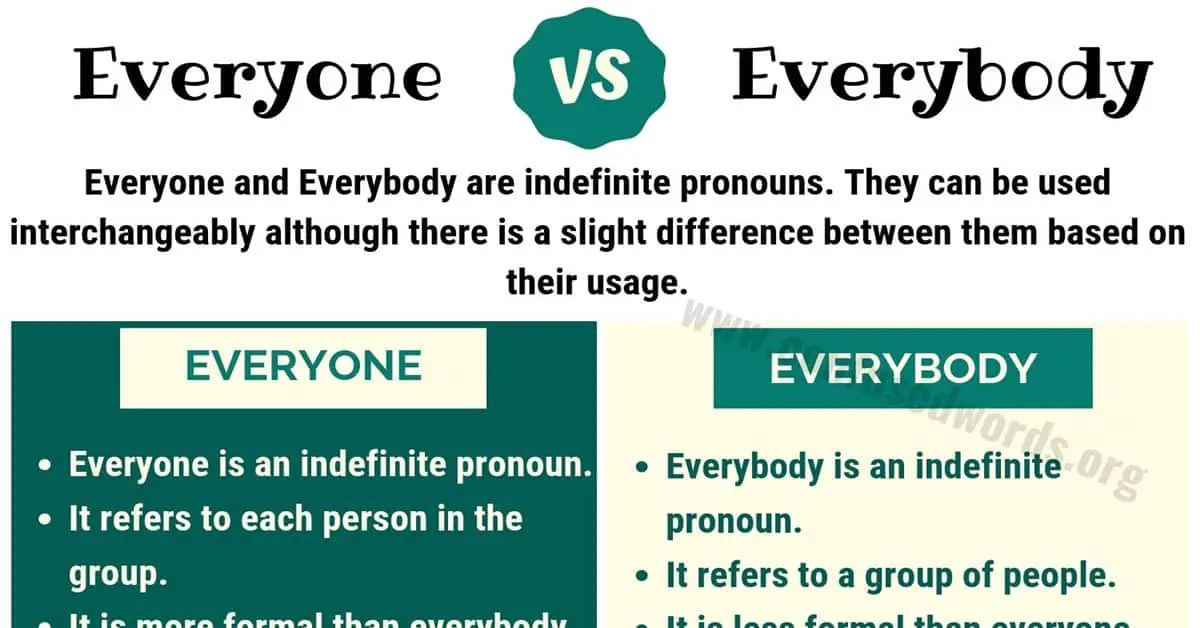
EVERYONE vs EVERYBODY How to Use Everybody vs Everyone in Sentences
Every, like each, is always used with a singular noun form and therefore with a singular verb form in English because we are counting the things or people that we are talking about separately one.
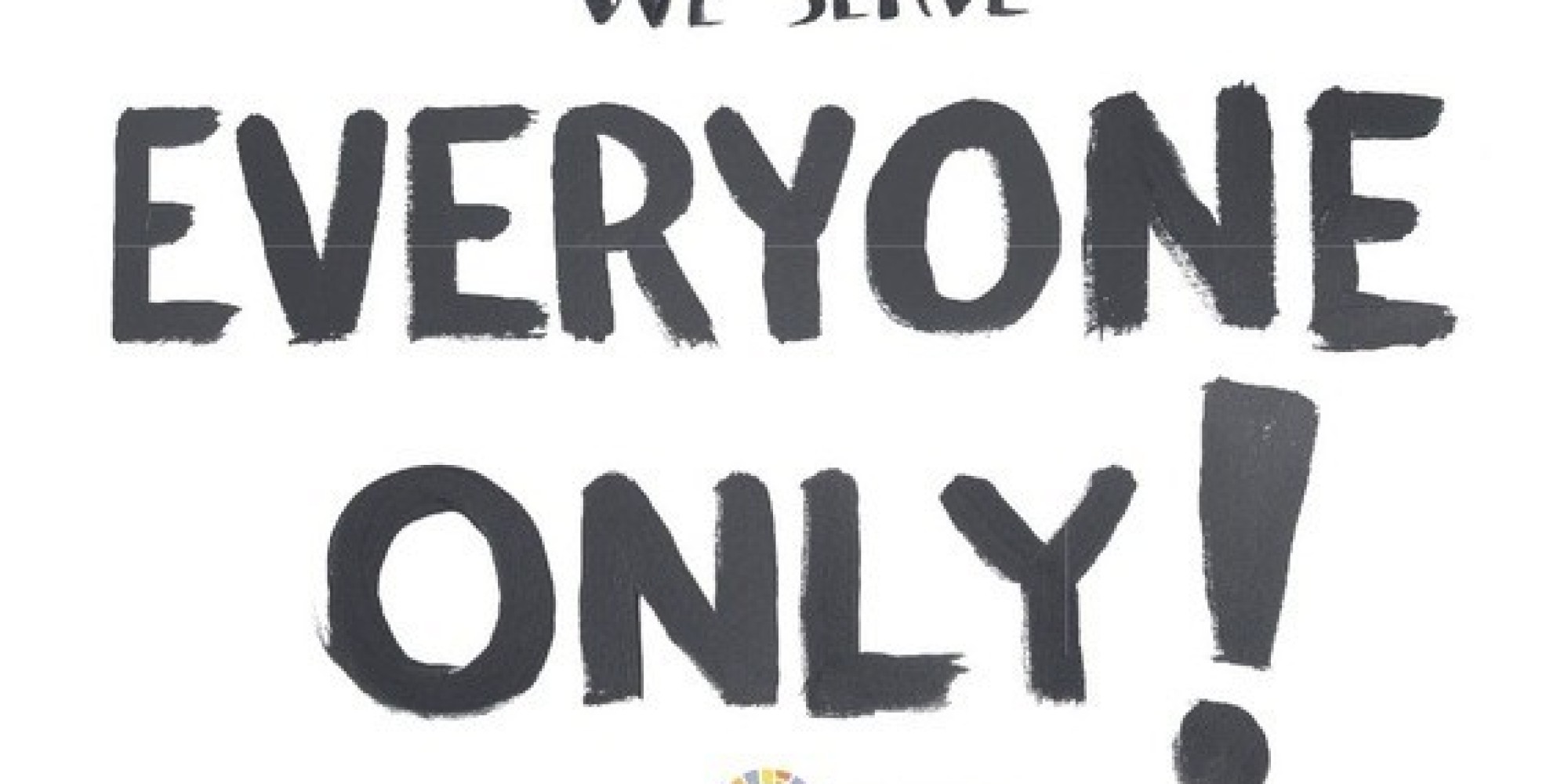
Rabbi Jack Moline Talks 'Everyone Only' Sign Campaign and LGBT Equality
Answer Everybody is third person singular. The words everybody and everyone are pronouns that describe a group of people, but grammatically they are singular. The last part of each word is a singular noun: body and one. Below are some example sentences: Everybody is coming to the house after the show. Everyone has a reason to smile.

a blue and white poster with the words everybody is it singular or plural?
1 `everyone' and `everybody' You usually use everyone or everybody to refer to all the people in a particular group. The police had ordered everyone out of the office. There wasn't enough room for everybody.
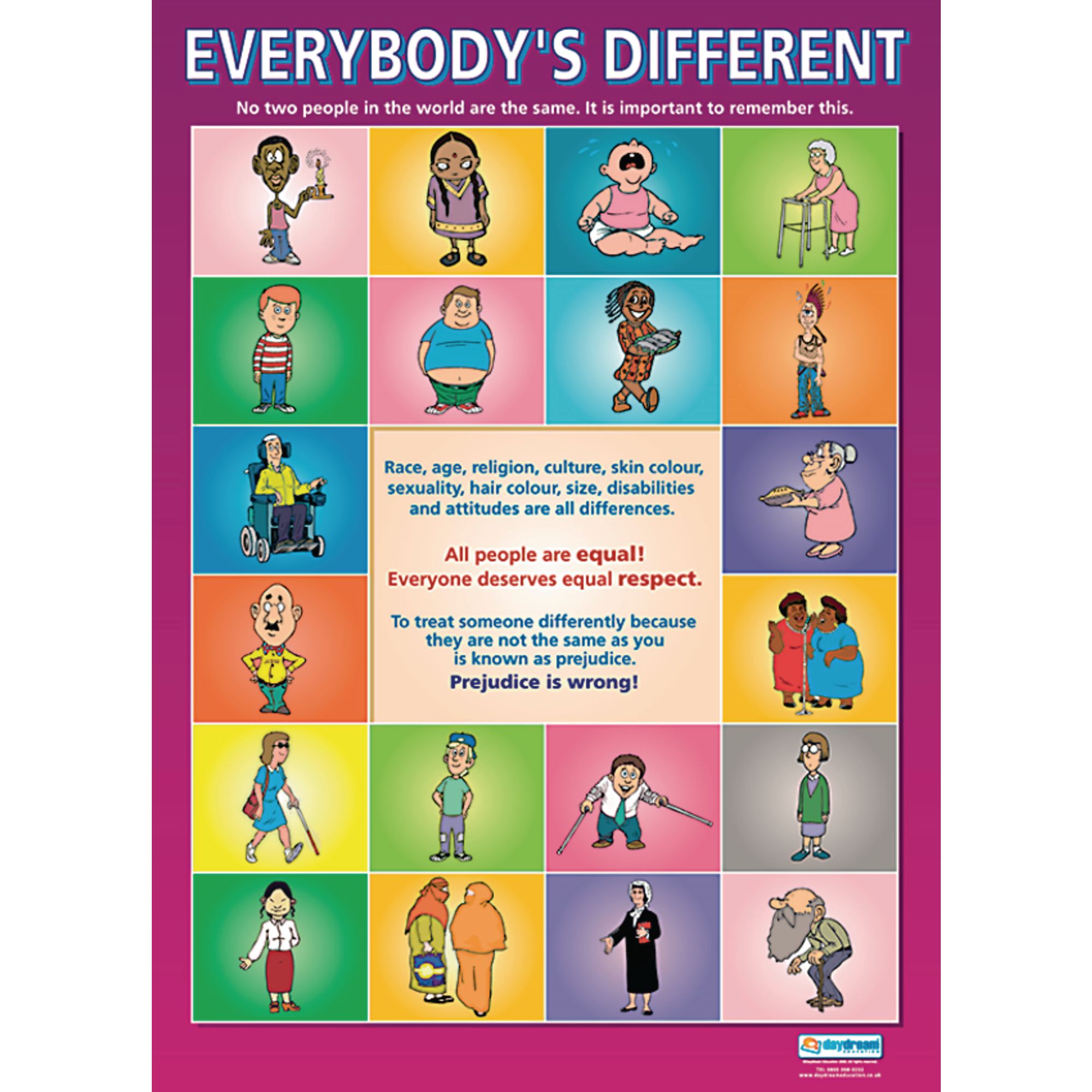
AGMT14333 Everybody's Different poster Hope Education
Since we use "everyone" to refer to more than one person, the majority of English learners' first instinct is to think of "everyone" as plural. Following this reasoning, they'll favor using "are" in place of "is.". However, it's important to remember that "everyone," "everything," "everybody," and "everywhere.
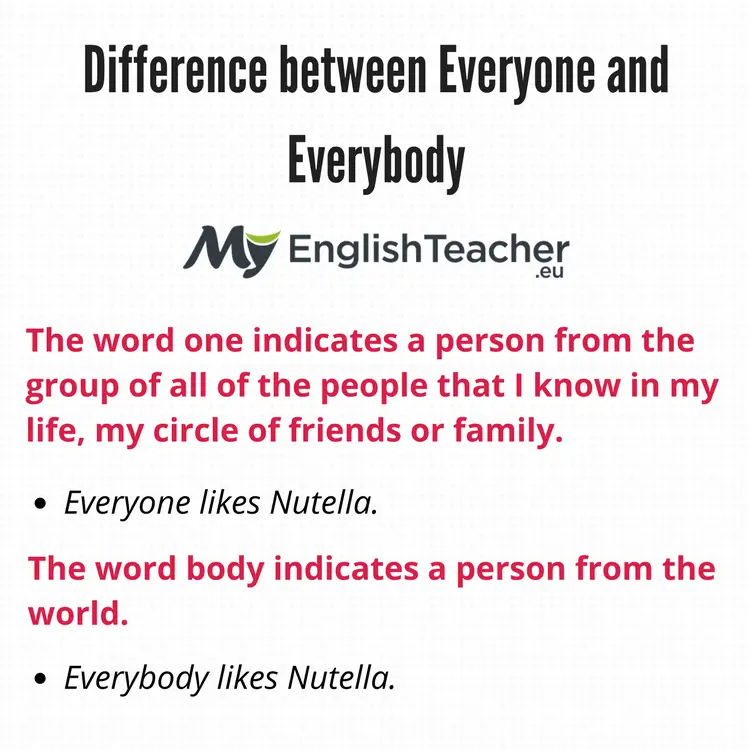
Everyone vs. Everybody. Difference between Everyone and Everybody.
pronoun ev· ery· one ˈev-rē- (ˌ)wən Synonyms of everyone : every person : everybody Everyone laughed at her joke. Not everyone finished their meal. Synonyms all everybody See all Synonyms & Antonyms in Thesaurus Examples of everyone in a Sentence He hated the movie but everyone else enjoyed it. Not everyone got the joke. Word History

Print Your Own Posters Everyone is Sproutbrite
anything. everything. nothing. something. We use indefinite pronouns to refer to people or things without saying exactly who or what they are. We use pronouns ending in -body or -one for people, and pronouns ending in -thing for things: Everybody enjoyed the concert. I opened the door but there was no one at home.
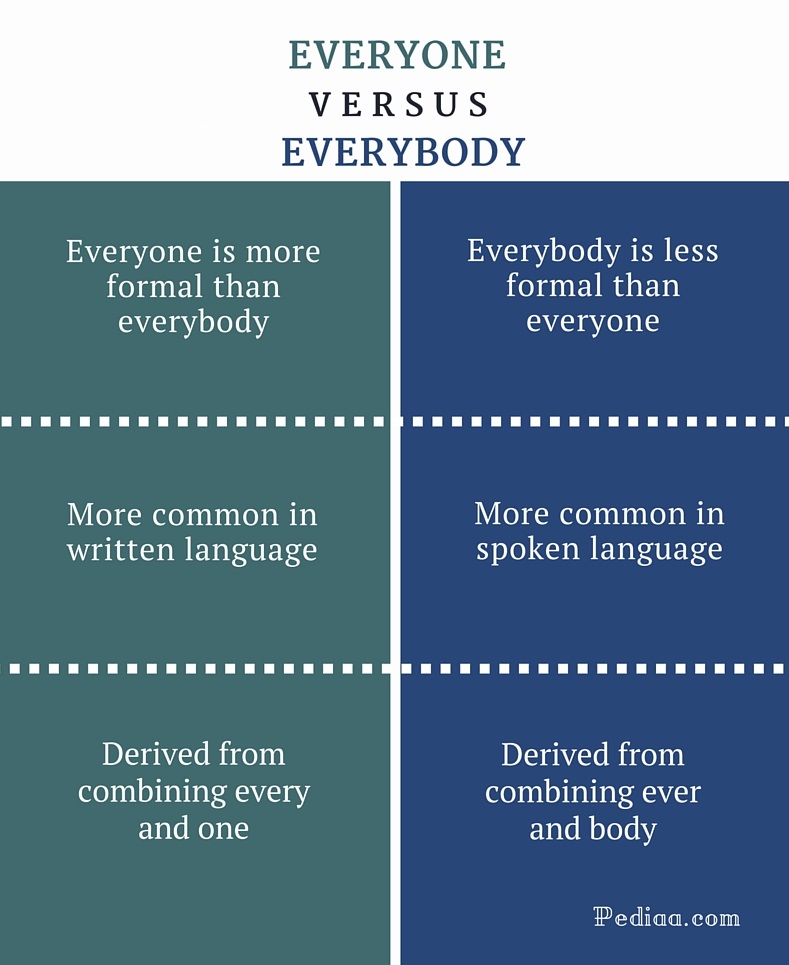
Difference Between Everyone and Everybody Grammar, Meaning and Usage
pronoun every person; everybody. everybody [ ev-ree-bod-ee, -buhd-ee ] show ipa pronoun every person. Compare More Words Compare More Commonly Confused Words What is the difference between Everyone and Everybody? Learn how to use each word properly on Dictionary.com.
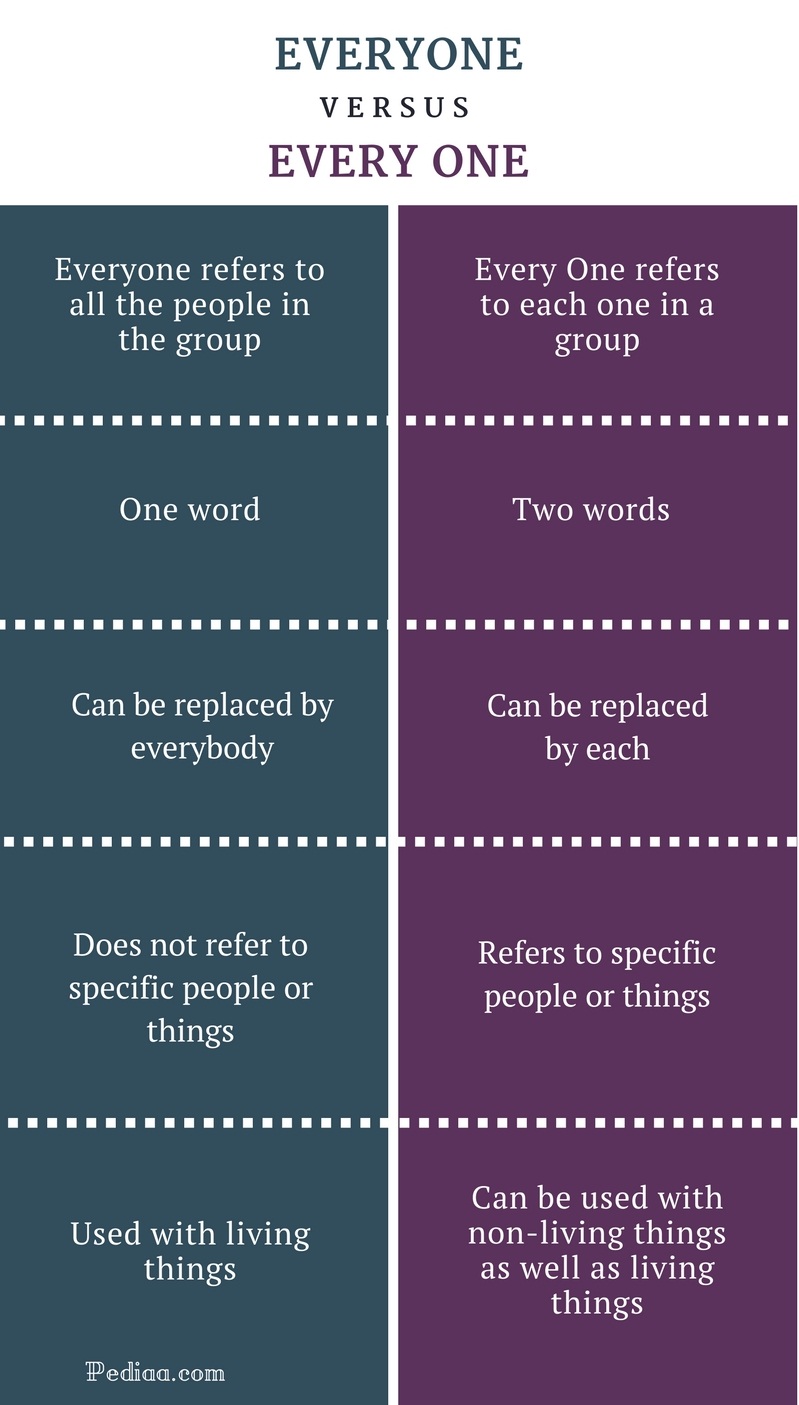
Difference Between Everyone and Every One Learn English Grammar and
On the one hand, number is singular, which calls for is. But people is plural, which calls for are. Typically, it's best to use are with a number of; essentially, the phrase is an idiom that means the same thing as several, and there is no question that several people would take the plural verb are. You may occasionally run into a pedant who.

English For Everyone Grammar Guide Penguin Books Australia
de English Grammar Today Everyone, everybody, everything and everywhere are indefinite pronouns. We use them to refer to a total number of people, things and places. We write them as one word: His name was Henry but everyone called him Harry. All your clothes are clean. I washed everything yesterday.

English for Everyone English Phrasal Verbs by DK Penguin Books Australia
us / ˈev·riˌwʌn / (also everybody, us / ˈev·riˌbɑd·i, -ˌbʌd·i /) Add to word list every person: You have to wait your turn like everyone else. Goodbye, everybody - I'll see you next week. (Definition of everyone from the Cambridge Academic Content Dictionary © Cambridge University Press) What is the pronunciation of everyone? A2
Everyone Is or Everyone Are Which Is Correct? Strategies for Parents
Grammar Everybody IS or everybody ARE? Shayna Oliveira Grammar Take your grammar to the next level! Do we say "everybody is happy" or "everybody are happy"? Even though "everybody" means multiple people, it takes a singular verb - everybody is happy. Everybody likes pizza. (Not "everybody like pizza").
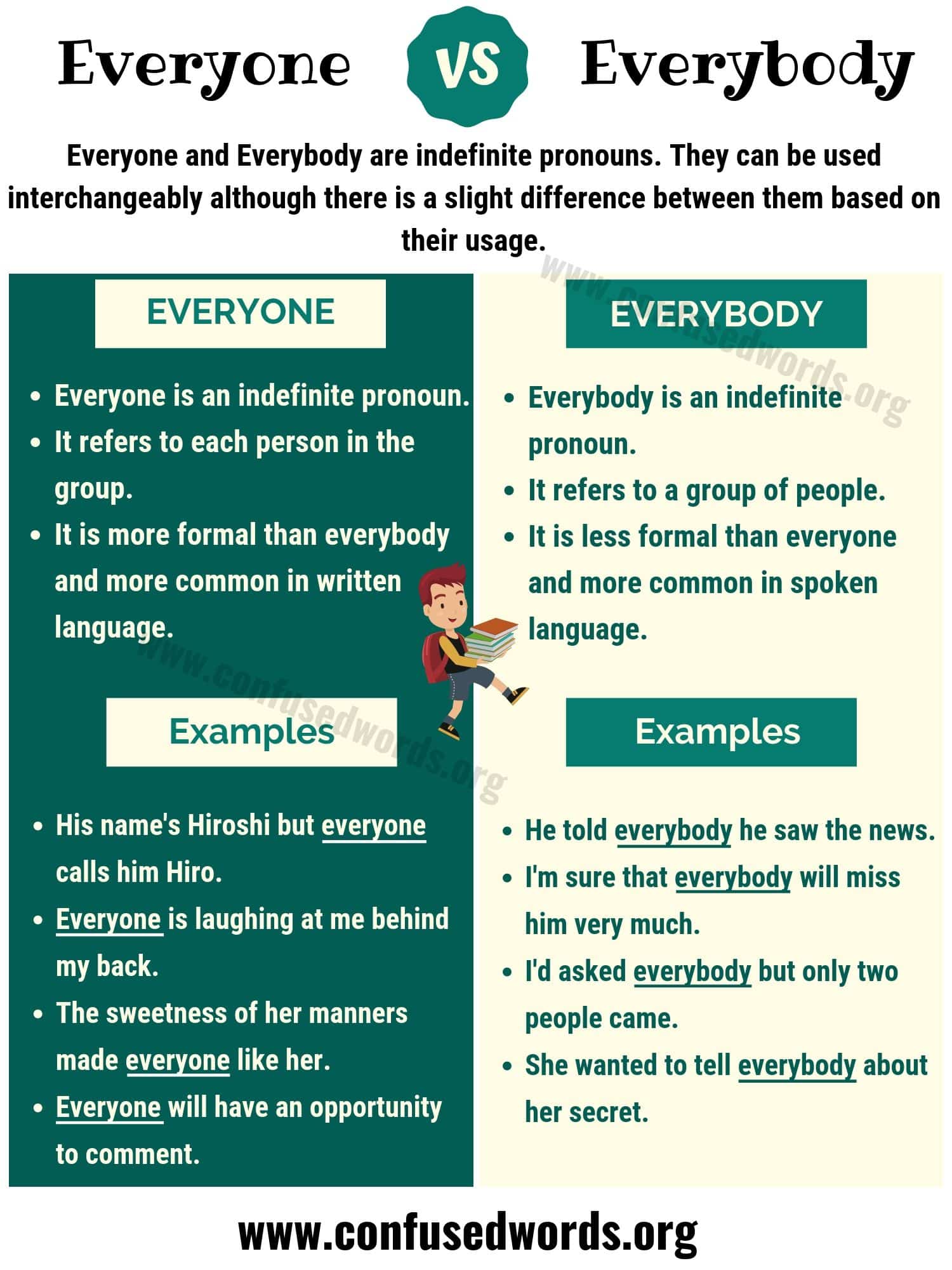
EVERYONE vs EVERYBODY How to Use Everybody vs Everyone in Sentences
The short answer is, there's not much difference! Both of these words mean "every person," and in dictionaries, the meaning of everyone is often given as everybody, and vice versa. However, it's worth mentioning that many people think everybody is a little more casual (more informal) than everyone.

Everyone vs every one Essential differences & good examples
Everyone definition: . See examples of EVERYONE used in a sentence.

"Everyone" vs. "Every One" of Us in English Grammar LanGeek
Everyone and every one are pronounced the same but have different meanings. Everyone (one word) is an indefinite pronoun meaning "everybody.". It's pronounced with the stress on the first syllable only: [ ev -ry-one]. Every one (two words) is a phrase used to refer to each individual or thing in a group, usually followed by "of.".